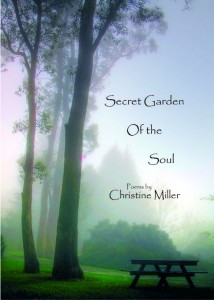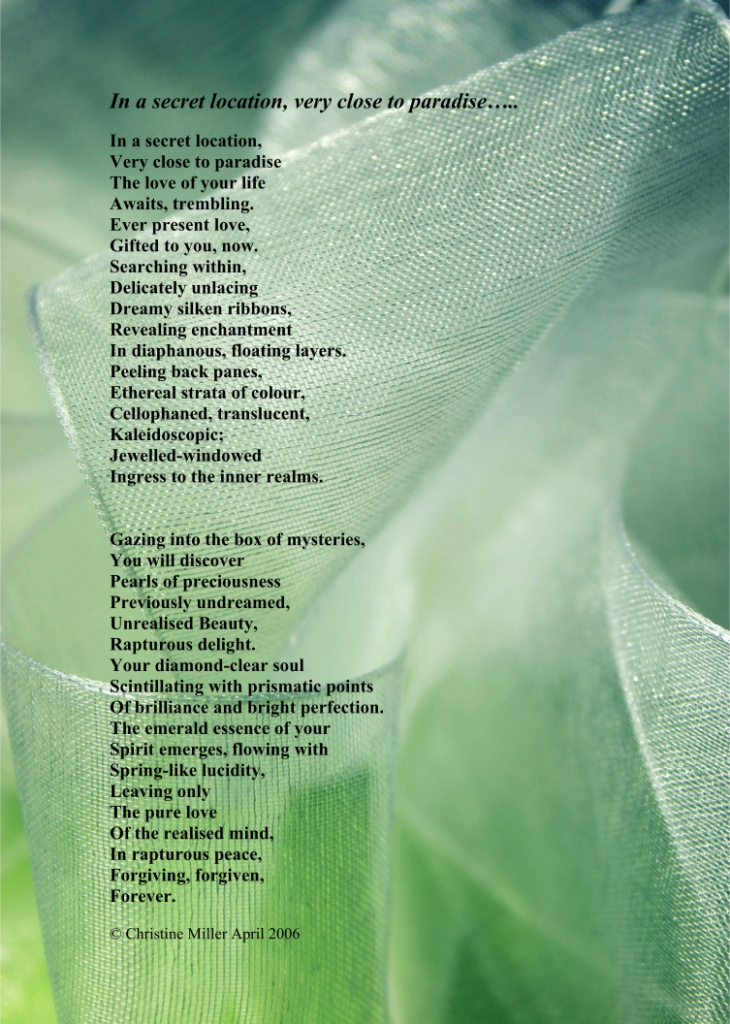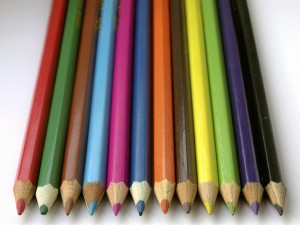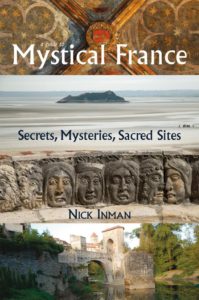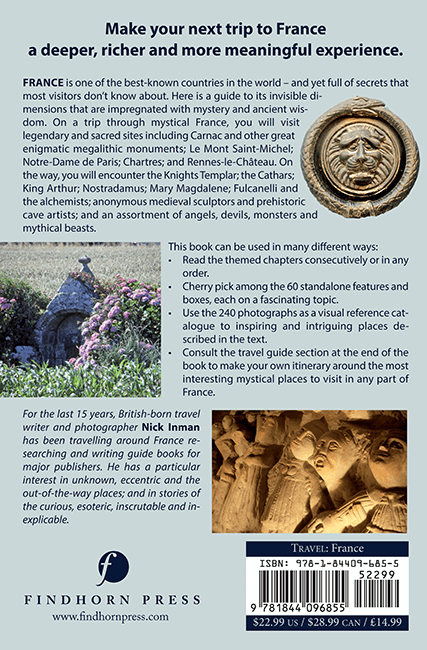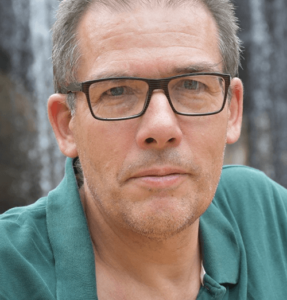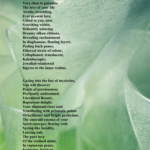Secret Garden of The Soul
For me, Poetry is a means of expressing our inner thoughts and feelings, our inspirations, insights and intimate experiences.
Life is poetry and poetry occurs all around us, in us and through, us all the time.
Poetry can be harsh and demanding, soft and yielding, delicate and dreamlike – and filled with stark realism. It doesn’t have to rhyme, it doesn’t have to make sense to anyone other than the poet, and it can blissfully, willfully ignore the rules of grammar and presentation.
And – poetry can be prose, images, short, long, scribbled on the back of an envelope or inscribed in elaborate hand on expensive paper. In essence, poetry is essence, yours, mine, ours, and it is personal yet universal, even cosmic, at the same time.
These poems are an invitation to journey through the Secret Garden of a Soul, a soul in the process of re-membering its essence and reconnecting to its authentic, joyful self.
My intention is that in reading the poems, you will find a meaning unique to your life, and that you, too, may be led to a place of inner peace and joy, a private place where your soul can dwell unfettered by mundane concerns.
What people say:
“I have just read your poems; they are very beautiful and soulful. Those poems would touch the minds and hearts of many people. You truly have the ability through your writing to touch people’s souls, Christine, and your voice is so needed in the world right now, your inner wisdom is bursting to come forth.”
Molly Harvey, The Soul Woman, Author/International Speaker, Former President and Fellow of the Professional Speakers Association
“Just received your poetry book. Reading through last night, it felt like a very privileged entry into your private world. The poem that particularly speaks to me this morning is ‘Blessings for Everyone’ – I love it.” Judy Apps Author, Voice of Influence,
“I was so pleased to receive your wonderful book. It is book of ideas, feelings, and remembrances. It is the kind of book that you can have next to your bed or on a coffee table and revisit it a week later, a month later, or a year later.” Somers H. White, CPAE, FIMC, Marketing, Management, Coaching and Financial Consultants
“Lovely to receive your beautiful book. Your poems indeed do touch the soul and give one lots to ponder about” Glennyce Eckersley, International Writer, Broadcaster and Speaker
Christine Miller has already established herself as a “Poetic Writer” through her many articles and through her excellent Resource Magazine. Christine now, with the publication of Secret Garden of the Soul, has turned her own poetic soul to a new volume of poetry that establishes her as a Poet of Her Time. The book is beautifully produced, and as you would expect if Christine were involved, is a feast for both the minds’ eye and the body’s eye. Beautiful metaphors lace the poetry, and beautiful photographic and illustrative images immaculately accompany each poem, giving it added meaning.
The cover, like the poet, is magical. In “In A Secret Location, Very Close to Paradise” Christine writes:
“Gazing into a box of mysteries
You will discover
Pearls of preciousness…..”
It is so, with Secret Garden of the Soul.
Tony Buzan , Multi-million selling author, poet & inventor of Mind Maps
Secret Garden of the Soul Available Now
This moving collection of poetry reflects an awakening of consciousness, and the liberation of a voice which has for many years been reluctant to publicly express its inner wisdom.
The poems are an invitation to journey through the Secret Garden of a Soul; a soul in the process of re-membering its essence and reconnecting to its authentic, joyful self.
The intention is that through reading the poems, you will find a meaning unique to your life, so that you, too, may be led to a place of inner peace and joy, a private place where your soul can dwell unfettered by mundane concerns.
